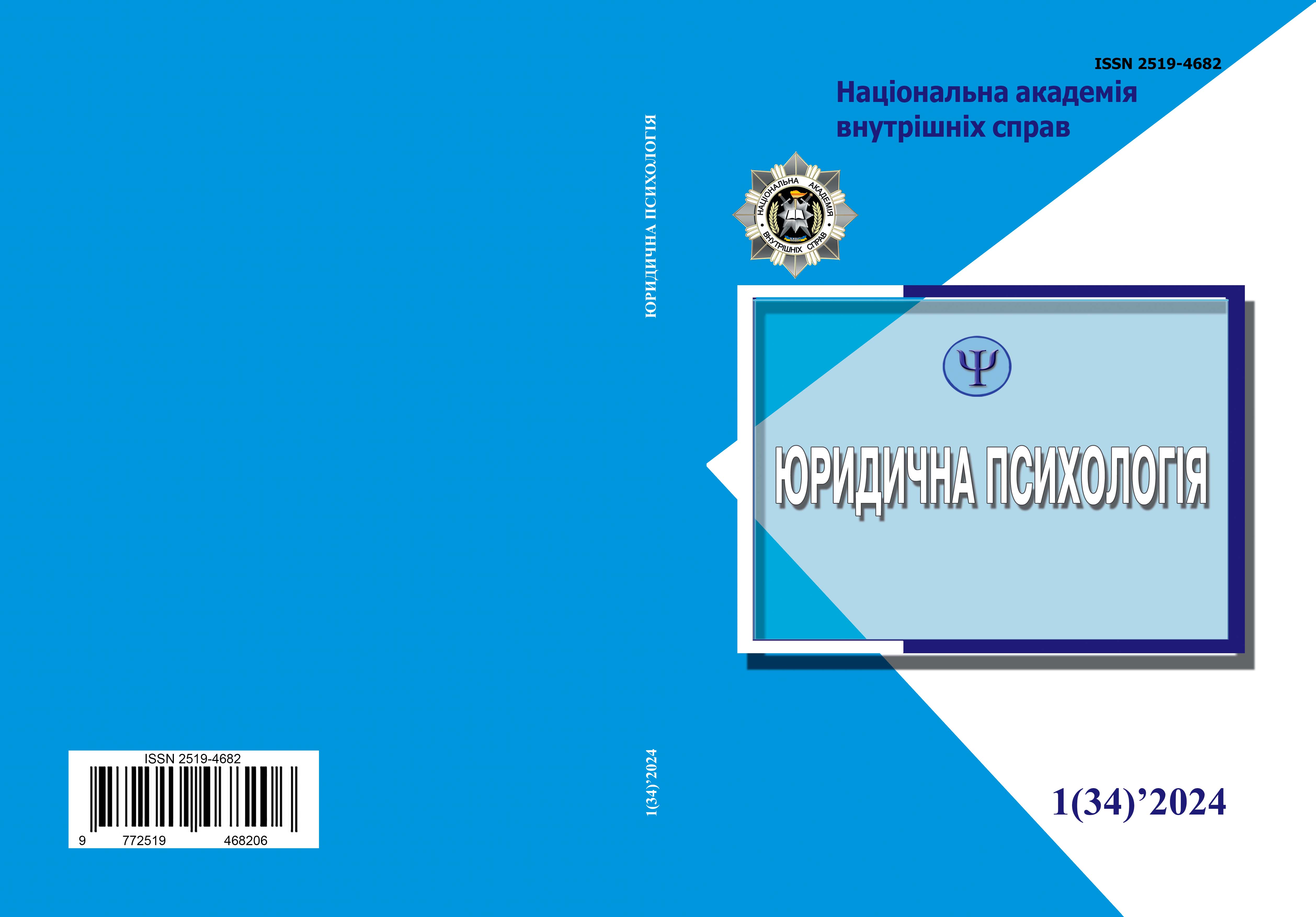Increasing the Student's Personal Status Through Motivation to Maintain Health
Abstract
Abstract. The article highlights the concept of motivation to self-preservation of students’ psychophysical health. Increasing the "personal status" of the student in the pedagogical process as a purposeful psychological and pedagogical influence aimed at the development of personal qualities of young people, which aims to form the ability for personal self-realization through motivation to preserve health. The purpose of our research is the theoretical substantiation of psychological and pedagogical concepts of motivation to maintain health and, because of this, increase the personal status of the student. The methodological basis of the article is general psychological and pedagogical provisions about the essence and development of personality in the process of life, theoretical provisions of the essence of the regularity of personality development, the principle of a systemic approach. The effective activity of a person is possible only through the understanding of his motivation, the path of cognitive research, the application of worldview principles to spiritual creativity and practice. The methodology of increasing the student’s personal status through motivation to preserve health is related to the theoretical understanding of learning by a young person. The scientific novelty of the article lies in highlighting the impact of modern education, training on student motivation, interest in self-preservation of health and, through motivation, increasing personal status. Technologies for the formation of a student’s personal status through motivation to maintain health. Conclusions. Increasing the student’s personal status through motivation to preserve health contributes to the socialization of a person in the process of interpersonal interaction. A positively motivated person with high authority contributes to the development of Ukraine with his achievements.
Keywords: motivation; interest; pedagogical process; status; health; socialization; social experience;
self-education.
Downloads
References
Bondarenko, V., Danylchenko, V., Khudiakova, N., & Krymets, O. (2019). Methodological approaches to professional training of future patrol officers. Pedagogical Innovations: Ideas, Realities, Perspectives, 2, 80-88. doi: 10.32405/2413-4139-2019-2-80-88.
Demianchuk, A.S., & Marchuk, O.O. (2018). Elucidation of problems of patriotic education young people in the works of famous Ukrainian teachers. Collection of scientific works of the International University of Economics and Humanities named after Academician Stepan Demyanchuk, 1(19), 10-15. doi: 10.5072/zenodo.218443.
Fedorenko, О.I. (2019). Diagnostics of national-patriotic upbringing of students of 5-6 grades of secondary schools. Collection of scientific works of the Uman State Pedagogical University, 4, 156-169. doi: 10.31499/2307-4906.4.2019.200199.
Hilton, C.E., & Johnston, L.H. (2017). Health psychology: It’s not what you do, it’s the way that you do it. Health Psychology Open, 4(2). doi: 10.1177/2055102917714910.
Hlavinska, O. (2022). Personal sovereignty as a prerequisite for the formation of self-esteem in youth. Psychology: reality and prospects, 18, 65-72. doi: 10.35619/praprv.v1i18.289
Kaliuha (2022). O.Yu. Tender features of communication in youth. Actual problems of psychology in educational institutions, 1, 136-141. doi: 10.31812/psychology.v1i.7581.
Kiselova, A.V. (2019). Peculiarities of conforming behavior in youth. Actual problems of psychology in educational institutions, 9, 243-248. doi: 10.31812/psychology.v9i0.3748.
Korniiak, O. (2020). Communicative means of psychological support of the teacher's professional self-realization. Psycholinguistics in a Modern World, 15, 132-136. doi: 10.32840/1992-5786.
Kovalska, N.M., & Bohadorova, L.M. (2021). Peculiarities of business communication in the educational environment: psycho-pedagogical aspect. Pedagogical Almanac, 46, 132-139. doi: 10.37915/pa.vi46.119.
Kremen, V. (2022). The philosophy of Grigory pannya in the context of anthropocentrism. Bulletin of the National Academy of Pedagogical Sciences of Ukraine, 2. doi: 10.37472/v.naes.4202.
Kudermina, О. (2011). Psychological features of professional communication of subjects of law enforcement activity. Problems of modern psychology, 12, 538-547. doi: 10.32626/2227-6246.2011-12.%25p.
Lorenz, H. (2019). Plato on the Soul. The Oxford Handbook of Plato (2nd ed.). G. Fine (Eds.). Oxford University Press. doi: 10.1093/oxfordhb/9780190639730.013.22.
Mahdysiuk, L., & Prytka, I. (2020). Psychological features of the manifestation of loneliness in youth. Psychology: reality and prospects, 14, 136-143. doi: 10.35619/prap_rv.vi14.162.
Okhremenko, K. (2023). The specificity of the educational process in the aspect of health care. The specifics of the educational process in the aspect of health care: materials of the International of science practice conference (pp. 305-307). Kharkiav.
Omelchenko, M.S. (2019). The problem of formation of professional consciousness of the individual at the stage of professional choice. Psychological Journal, 5(10), 131-142. doi: 10.31108/1.2019.5.10.
Omelchenko, T. (2019). Experimental study of personal self-development of future practical psychologists. Psychological Prospects Journal, 34, 194-205. doi: 10.29038/2227-1376-2019-34-194-205.
Ostapchuk, M.V. (2022). Choice of mental protection mechanisms in youth and adulthood. Actual problems of psychology in educational institutions, 2, 108-113. doi: 10.31812/psychology.v2i.7518.
Romaniv, L.V., & Pishak, O.V. (2021). New approaches to the formation of health-care motivation of student youth. Grail of Science, 10, 426-430. doi: 10.36074/grail-of-science.19.11.2021.104.
Shevchenko, A. (2019). The relationship between social desirability and value orientations in youth. Theoretical and applied problems of psychology, 3(50), 2, 146-157. doi: 10.33216/2219-2654-2019-50-3-2-146-157.
Zalanovska, L.I. (2019). Psychological and pedagogical aspects of the formation of tolerance to work in an inclusive education. Psychological journal, 3, 180-193. doi: https://doi.org/10.31108/1.2019.3.23.12.
Abstract views: 18 PDF Downloads: 36
- Authors reserve the right to authorship of their own work and transfer to the magazine the right of the first publication of this work under the terms of the Creative Commons Attribution License, which allows other persons to freely distribute published work with mandatory reference to authors of the original work and the first publication of an article in this magazine.
- Authors have the right to enter into separate additional agreements on non-exclusive dissemination of the work in the form in which it was published in the journal (for example, to post an article in the institution's repository or to publish as part of a monograph), provided that the link to the first publication of the work in this journal is maintained.
- The journal's policy allows and encourages the posting of articles by authors on the Internet (for example, in electronic storehouses of institutions or on personal websites), both before the submission of this manuscript to the editorial office and during its editorial processing, as this contributes to the creation of a productive scientific discussion and positively affects the efficiency and dynamics of citing the published work.




